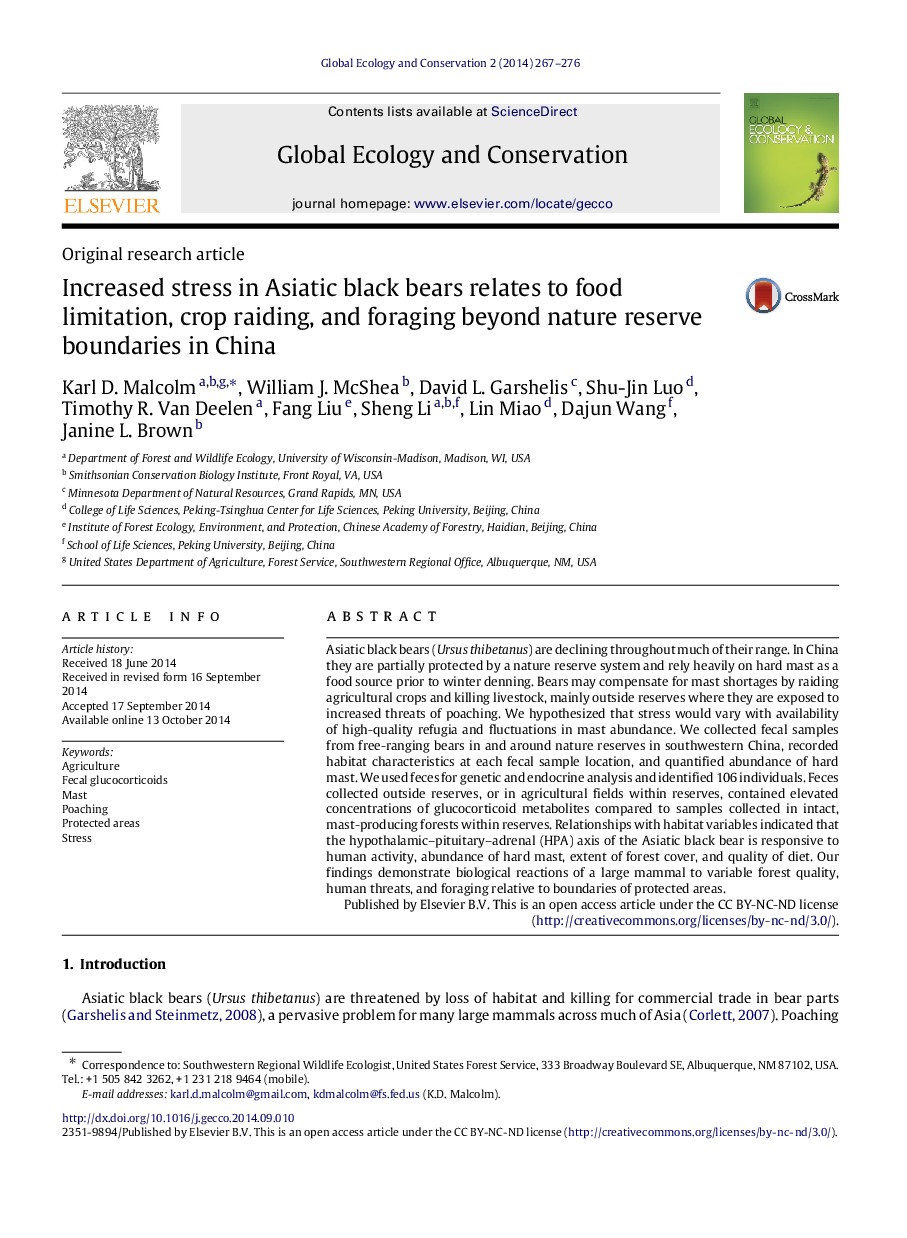| کد مقاله | کد نشریه | سال انتشار | مقاله انگلیسی | نسخه تمام متن |
|---|---|---|---|---|
| 4379689 | 1617665 | 2014 | 10 صفحه PDF | دانلود رایگان |
Asiatic black bears (Ursus thibetanus) are declining throughout much of their range. In China they are partially protected by a nature reserve system and rely heavily on hard mast as a food source prior to winter denning. Bears may compensate for mast shortages by raiding agricultural crops and killing livestock, mainly outside reserves where they are exposed to increased threats of poaching. We hypothesized that stress would vary with availability of high-quality refugia and fluctuations in mast abundance. We collected fecal samples from free-ranging bears in and around nature reserves in southwestern China, recorded habitat characteristics at each fecal sample location, and quantified abundance of hard mast. We used feces for genetic and endocrine analysis and identified 106 individuals. Feces collected outside reserves, or in agricultural fields within reserves, contained elevated concentrations of glucocorticoid metabolites compared to samples collected in intact, mast-producing forests within reserves. Relationships with habitat variables indicated that the hypothalamic–pituitary–adrenal (HPA) axis of the Asiatic black bear is responsive to human activity, abundance of hard mast, extent of forest cover, and quality of diet. Our findings demonstrate biological reactions of a large mammal to variable forest quality, human threats, and foraging relative to boundaries of protected areas.
Journal: Global Ecology and Conservation - Volume 2, December 2014, Pages 267–276
